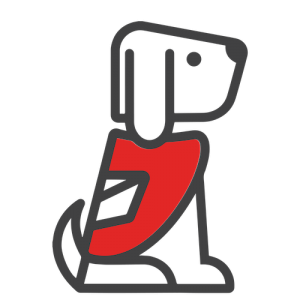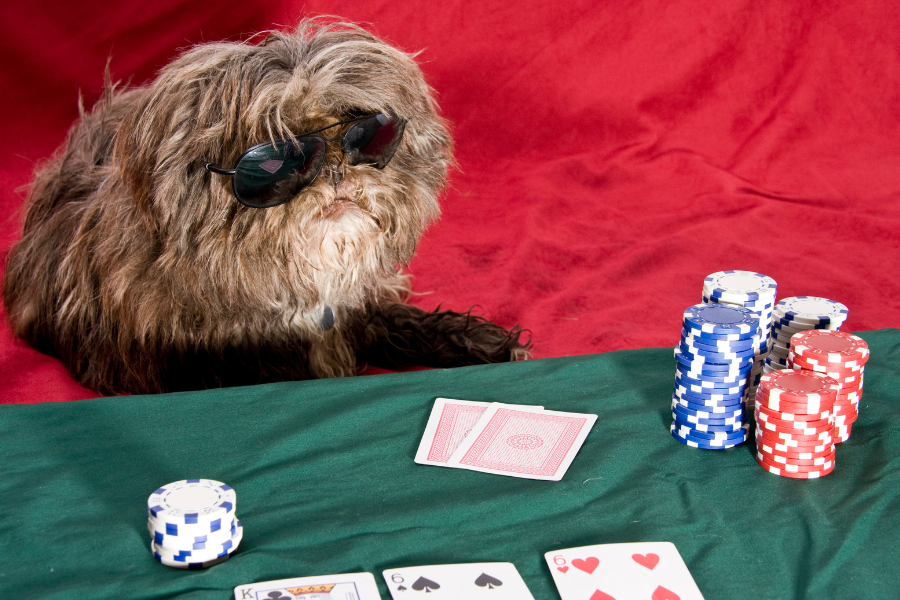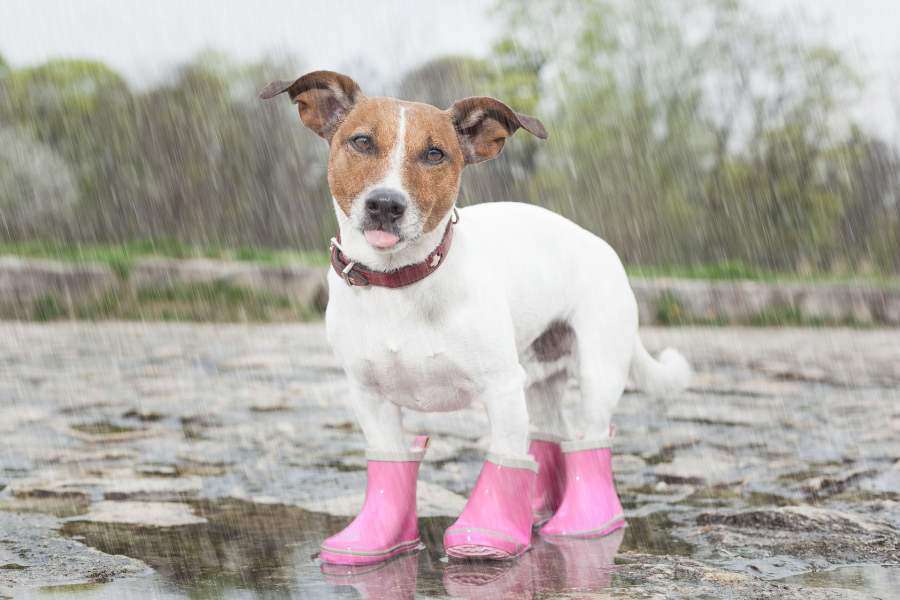
Dog Obedience Training in 15 Minutes a Day
- Published on:
- By: ASP Team
Service Animal ownership has many benefits, which we have thoroughly explored in previous blogs. Many well-documented studies showcase how Service Animals are an effective, holistic treatment that not only improves the lives of their owners but also allows them to participate fully in daily life. The cost of owning a Psychiatric Service Animal can be steep, leaving you reeling from sticker shock. Professional Service Dog training can come with a high price tag and a fair amount of headaches. Thankfully, the Americans with Disability Act has a provision that allows you to train your own Service Animal. Many people dismiss self-training their dog as a Service Animal simply because they get overwhelmed and don’t know how to begin.
Where to Start
Luckily, if you are in need of a Psychiatric Service Animal, you can legally train your dog from the comfort of your own home! That’s where the I Train Academy from American Service Pets comes in. This training bridges the gap for Service Animal owners. It makes having and training your own Service Animal accessible to everyone.
Some of the best news for the Service Animal community coming out of 2022 was American Service Pet’s announcement of their release of the I Train Academy Masterclass. It is an easy, affordable Service Dog training from celebrity dog trainer Jas Leverette. Jas is an expert dog trainer with over 20 years of experience helping dogs and owners work together. He is also the founder of Cali K9, which offers in-person, online, and board and training options. His work has been recognized by celebrities all over the world. You may have seen him on Netflix’s Canine Intervention, Dr. Phil, the Ellen show, or possibly even your favorite Hollywood A-lister’s social media feed!

Get Your ESA Today
ATTENTION
Due to the new Department of Transportation (DOT) policy, Emotional Support Animals are NO longer allowed to fly in airplane cabins for free. However, Psychiatric Service Dogs are eligible.
We’ve collaborated with Jas to create an online masterclass simplifying his process to deliver for you what he offers his celebrity clients. The I Train Academy has over 50 lessons that will allow you to effectively train your pup as a PSA!
With 50+ proven lessons from celebrity dog trainer Jas Leverette, I Train Academy allows you to begin training your dog with a Psychiatric Service Animal in as little as 15 minutes per day! This training covers obedience training, socialization, agility, behavior modification, problem-solving, and Service Animal task training.
American Service Pets asked me to give our readers a synopsis and review of the first lesson. Keep reading for a FREE preview of the course and my assessment. (hint: I’m a fan!) This first session is on them and will get you set and ready to master your training! Now, there are no obstacles standing in the way for you and your Service Animal!
Key Takeaways : Lesson #1
What is a Psychiatric Service Animal(PSA)?
First things first, it’s important to know what a PSA is. There are multiple types of Service Animals, and this training would provide a great base or starting point for any working dog. For this training, we are focusing solely on Psychiatric Service Animals. A PSA is a dog trained for a specific task pertaining to its handler’s disability. Diagnosed anxiety, depression, ADHD, PTSD, bipolar disorder, autism, etc. can all qualify someone for a Psychiatric Service Animal.
Is Your Dog the Right Fit?
Not every dog makes a good Service Animal, so how do you know if your pupper has what it takes? When it comes to Service Dogs, they must be well-behaved and well-trained.

Things to Keep in Mind
- Temperament is key when selecting a dog for training. Behavior can be modified, but the dog should be friendly. Any sign of aggression will disqualify your dog.
- Please don’t skip putting in the work to train your dog properly. It’s illegal to claim your dog is a service dog without proper documentation and training. You should never fake a Service Animal. It poses a legitimate danger to trained Service Animals, their handlers, and the general public. Not to mention, it could have serious legal ramifications for you.
- Dog training is also people training. Sometimes your dog’s poor behavior results from your own lack of follow-through. Keep this in mind, and you will set yourself and your dog up to win.
- Utilizing this course requires only 15 minutes a day to train your dog regarding obedience and condition-related tasks. It’s an easy commitment, so there’s no reason to skip this crucial step to properly prepare your dog for public access.
- You do not need a lot of fancy supplies to begin. You only need a platform, a leash, and treats. One of my favorite things about trainer Jas Leverette is the practical tips he shares to help make the most of your dollars.
- The foundation of all training for working dogs begins with obedience training. Every other skill, task, problem, or situation you encounter will build off of this as the base.
Training Method

Jas’ training method uses positive reinforcement and rewards. Good and desired behavior is rewarded, while unwanted behavior is re-directed. The Cali K9 system developed by Jas has five pillars which he teaches in this course. The I Train Academy Class covers the following:
- Obedience
- Socialization
- Agility
- Behavior Modification
- Problem-Solving Technique
Just like with people, every dog is different. This may mean that some require more work on certain behaviors and that’s ok! Once you identify your pup’s biggest challenge, you can focus on those behaviors to ensure that this weakness becomes an area of growth.
Pay attention to your dog’s cues. Awareness of your dog’s temperament and physical cues during training is very important. 15 minutes a day is recommended as the most effective means to hold your dog’s attention span. In real life, a dog may need to be focused and working for much longer than that, but this is a great starting point for you to build upon, especially with the basics of obedience training.
Tools Used in the Training Process
Rewards
Select a high-value food or treat to reward your dog. You could go through thousands of treats over the course of your training, so choose something that is motivating for your dog but also reasonable. Some owners use regular kibble for dogs that are very food motivated. Some dogs may love cooked chicken, while others may choose high-quality dog food to split up for treats and make it more desirable.
Toys as rewards
Toys are effective rewards, especially for dogs who are not as food motivated. When using a toy as a reward, Jas recommends a toy with handles. The handles give your dog an easy target to bite onto for retrieval and interactive play.
You can use a tennis ball (for a game of fetch), but be careful not to let your dog chew on tennis balls because the glue wears down the enamel on its teeth. Jas offers an alternate option called the “tug” toy through his website CaliK9.com.
Leashes
A basic leash is critical early in the training process. You want this leash to be 6 feet long (and appropriate for all weather). As you get further into training, you will need longer leash options.

Collars
It’s important to know how your dog and how it responds to provide the most effective level of correction or redirection. Under-correcting your dog can have the opposite effect of what you’re going for. It can stimulate your dog more instead of correcting its behavior.
A flat collar is your basic dog collar. You can layer onto training by adding another type of collar as you progress through training. There are two common collar options for training. Knowing your dog and the behaviors you are training will help you to select the right one.
- The “Slip Collar”: After your dog has become comfortable with a regular flat collar, the preferred option is a slip collar. This is effective for training because when positioned properly it only takes a quick tug of the leash to remind your dog who is in control. Your dog should not be leading you in a slip collar. Jas teaches the practical method for how to use this type of collar to keep your dog safe and achieve the best results.
- The “Pinch Collar”: The pinch collar can create aggression in some dogs. This can type of collar can be helpful for behavior modification but is not the preferred choice.
- The “Remote Collar: Can be used in addition to these collar options. Jas explains that this can have a negative connotation, but when used on low, the remote collar provides a continual stimulus that signals your dog when something should be happening. A remote collar can be paired and used on top of another collar so your dog understands the remote correction is coming from you.

Bottle Curtain
This is a simple, effective tool to introduce stimuli, noise, and opportunities for distractions to the environment while training or socializing your dog. Jas shows a great visual of this in class, making it easier to understand how to create and apply this tool. You can create your own by attaching empty plastic bottles to a string and hanging them from a stick.
Flirt Pole or Tale Teaser
This serves as a distraction in training scenarios by mimicking a dog’s natural desire to chase squirrels, rabbits, and other small animals. One can be constructed by attaching a tug toy to a pole with a rope attaching the tug toy. It’s important to give your dog an outlet to reward their natural excitement and drive. This is a productive way of directing their energy away from the wrong things, and toward the right ones, so they aren’t so impulsive to things they naturally want to chase like squirrels.
Training Vest
A vest like the one Jas offers through Cali K9 can be a useful tool. This tool helps you to keep your dog guessing throughout the training process so that they perform at its peak. You want a vest with many pockets so your dog can’t predict where rewards will come from.
Rate of Progress
Just like people, all dogs learn at different rates. The material is broken down into bite-size pieces to make it practical. Therefore, it’s important to progress through training at a rate that best serves you and your dog. You can take your time with each step, redoing any steps or slowing down when you feel it’s necessary.

Reading Your Dog
While training, it is important to read your dog’s body language. The body cues from your dog communicate whether they’re playful, stressed, anxious, or shutting down. The more time you spend training your dog, the more knowledgeable you’ll be of its cues. A happy dog is ready to learn. A disengaged dog needs some space. The training process naturally provides a bonding experience that builds communication and relationship with your dog. The bond you’ll build is a great byproduct of self-training your Service Animal.
Vocal dogs are typically just expressing excitement and drive. This is not necessarily a bad thing. You will need to intentionally give your vocal dog an appropriate outlet, train in shorter durations, and reward quiet behavior for communicating what’s desired and valuable.
Course Assessment
Overall, the first course is very helpful to individuals just starting. Trainer Jas Leverette provides some helpful tools that give the student practical handles to grasp his methodology. He makes it simple to apply the training successfully with your dog, even if you think training is challenging or doubt that your dog can be trained. This training will prepare you and your Service Dog for public access.
I can’t express enough just how grateful I am for such a useful training tool for Service Animal owners. This breaks down the barriers to Service Animal ownership, ultimately improving the mental, emotional, and physical health of the individuals who benefit most. For a closer look at the program or if you’re ready to start your adventure with a Service Animal, check out I Train Academy today!

The benefits of an Emotional Support Animal certification and a Psychiatric Service Dog certification are drastically different. Fortunately for you, American Service Pets’ network of active board certified doctor or other licensed mental health providers can help you find the right path to certification. To find out whether you need an ESA or PSD letter, take our easy, three-step Pet Owner Survey!
More Great Resources




